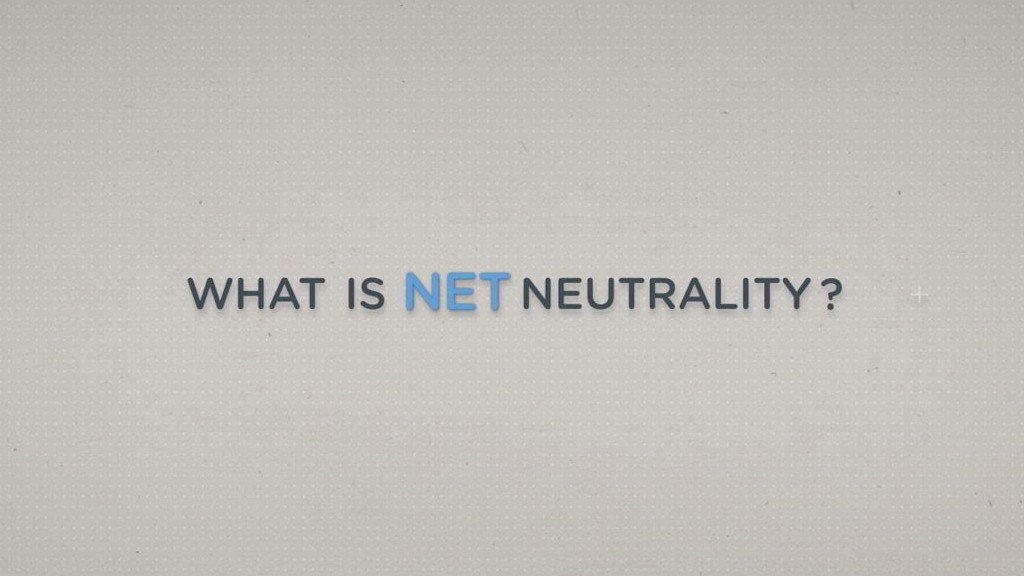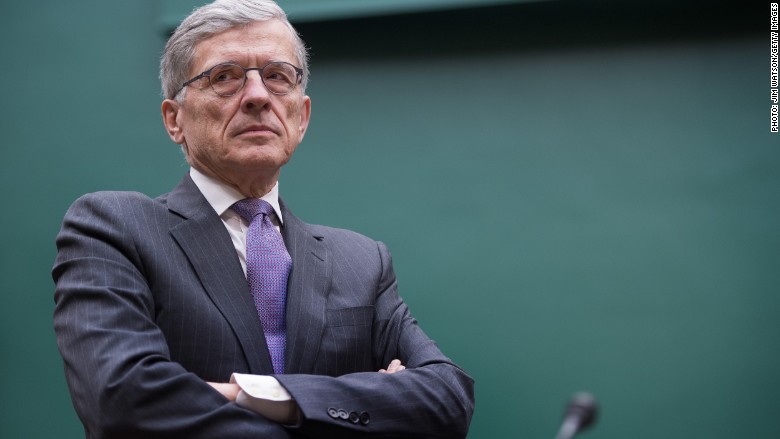
After stepping down from his role as the country's top media industry watchdog, Tom Wheeler needed a drink. A margarita, to be precise.
"My wife and I went and spent a couple weeks in Cabo -- what I describe as intensive margarita therapy," says Wheeler, who ended his term as chairman of the Federal Communications Commission last month.
Under Wheeler, the government agency approved net neutrality rules to keep the Internet open and fair. The rules prevent providers like Comcast (CCV) from deliberately speeding up or slowing down traffic from specific websites and apps.
The FCC also gave consumers more control over their online privacy, expanded broadband access to low income households and was on the cusp of doing away with the need to rent cable boxes.
Then Donald Trump won the election and the Republicans maintained control of Congress. Suddenly, many of Wheeler's signature accomplishments seemed in jeopardy.
Related: Trump's FCC may try to roll back net neutrality. Here's why that matters
Shortly before stepping down, Wheeler used his final public speech as chairman to warn the next administration not to go backward on regulations. A few days later, President Trump picked Ajit Pai to succeed Wheeler. Pai is a former lawyer for Verizon (VZ) and an outspoken critic of the net neutrality rules.
A month into the new FCC administration, Wheeler tells CNNTech, "It's going the way I feared."

In particular, Wheeler points to Pai's FCC taking steps to weaken net neutrality.
As chairman, Wheeler slammed wireless companies like AT&T (T) for violating net neutrality rules by letting customers stream content from its video service, DirecTV, without counting toward data plans. That effectively makes third-party video services more costly. But this month, the FCC dropped all investigations into the issue.
(Disclosure: AT&T has agreed to acquire Time Warner, the parent company of CNN. The deal is pending regulatory approval.)
Pai's FCC also voted last week to undo a net neutrality transparency rule requiring smaller broadband providers to disclose details on data caps and fees.
"Conservatives used to be against letting big companies determine who gets on the broadcast airwaves, but now they are for allowing big companies to determine who gets on the Internet [and] on what terms," Wheeler told CNNTech by phone Friday.
"It seems to me the lobbyists are winning out over core principles here," he added.
The FCC declined to comment for this story.
Related: The FCC's cable box plan is doomed
Earlier this month, the FCC blocked nine companies from providing low-income Internet access. And this week, the agency is moving to stop some of Wheeler's broadband privacy rules from taking effect.
For now, Wheeler is trying to figure out the best way to engage with these issues as a private citizen, while mindful that "there is an appropriate way in which a former chairman should be acting."
One approach, he says, is working at the "cutting edge." He recently joined the board of Actility, an Internet of Things company, to be part of what he describes as "Web 3.0." He hopes to join more boards and "do some teaching and writing."
The other part, of course, would be speaking out publicly against the FCC's actions on issues like net neutrality.
"I don't expect to go enroll in a monastery," he says, before adding: "The right way to do this is a matter that requires ... tact, if you will."
One thing Wheeler can't quite bring himself to do is disconnect.
"I wish I could be disciplined enough to keep a distance," he says. "You still feel these things in your gut and you still believe them strongly, so you can't help but watch what's going on with some concern."

